Can cycling compromise your immune system?
Training hard should make you perform better on the bike — but could a tough session actually compromise your immune system, leaving you vulnerable to other problems? Words by George Winter
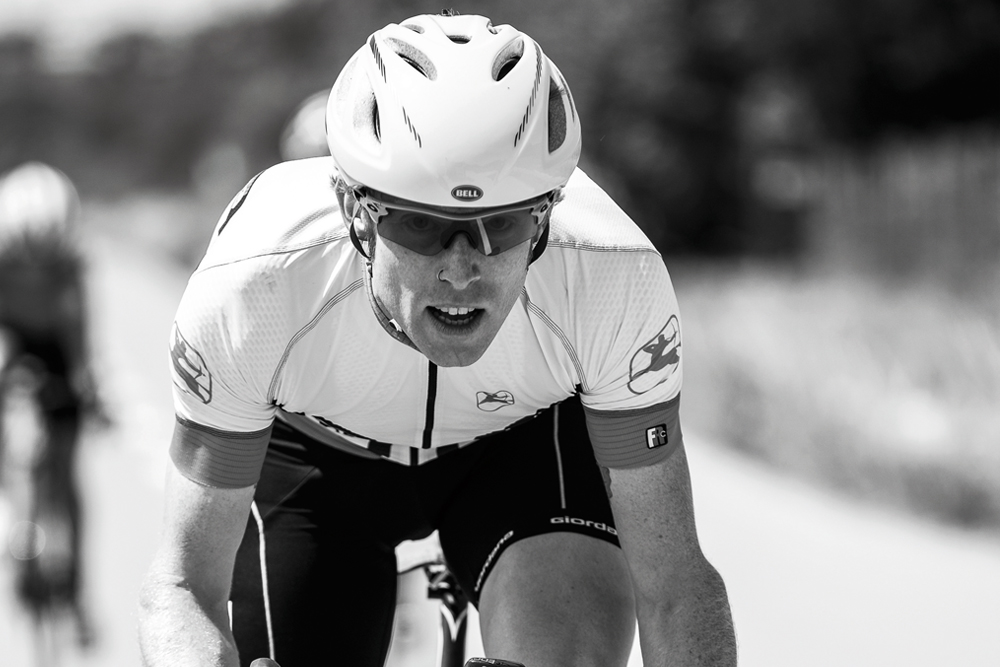
Photo: Jesse Wild
The latest race content, interviews, features, reviews and expert buying guides, direct to your inbox!
You are now subscribed
Your newsletter sign-up was successful
One of the sayings inscribed over the ancient Greek Oracle at Delphi is ‘nothing in excess’, a phrase that has woven itself into present-day life as ‘moderation in all things’. Clearly, the Ancient Greeks were unfamiliar with the concept of training hard on a bike.
>>> Benefits of cycling: reasons to get on your bike
It’s fair to say that if you train moderately, you’ll perform moderately too, whereas if you train hard you’ll perform better. When you undertake physical exercise you’re undergoing a form of physical stress, and studies have shown that our hormonal and immune systems respond to strenuous exercise in a similar way to surgery, trauma or burns.
>>> Ride and race smarter: improve skills to stay safe in the bunch
As Professor Tim Noakes, of exercise and sports science at the University of Cape Town, South Africa, explains in his book Lore of Running mild exercise prompts the immune system to:
- Release a protein called endogenous pyrogen, which increases the body’s temperature, making it more hostile to invading bugs.
- Produce more interferon, a protein that is active against viruses.
- Increase the activity of ‘killer’ white blood cells.
The combined effect of these proteins and cells is to reduce the risk of an athlete developing an infection. Noakes writes: “This gives rise to the concept that mild to moderate levels of physical activity enhance immunity, whereas high levels of training and competitive stress increase the risk of infection.”
Strenuous exercise
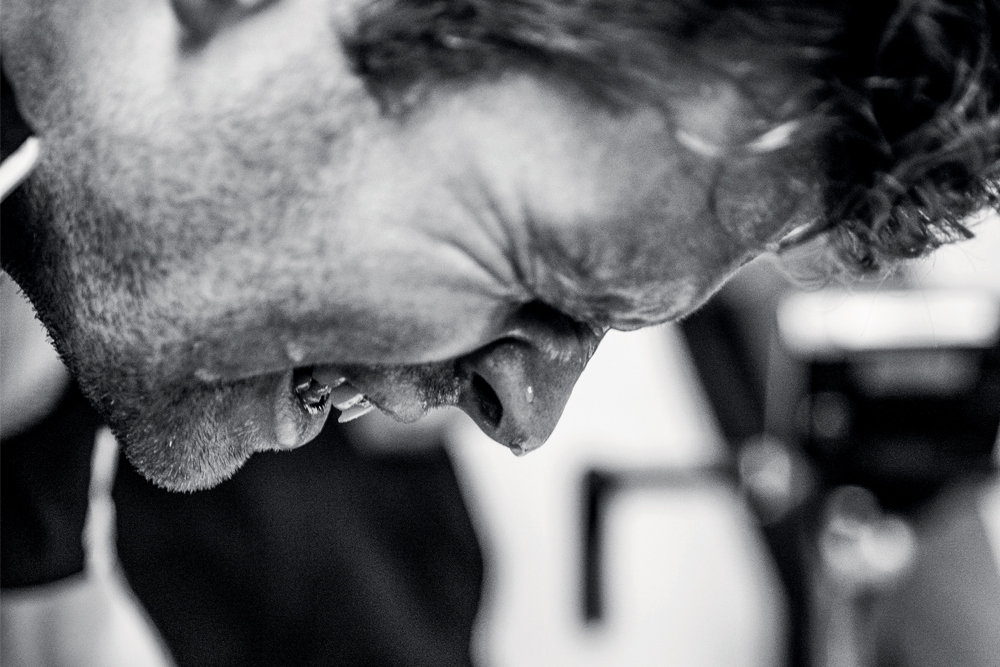
Undertaking moderate exercise confers well-documented health benefits, not least on the immune system. But the fact remains that if you want to improve competitive endurance performance, you’ll need to do some intense, strenuous training. This, however, may crank up the production of stress hormones and other proteins that may, in turn, temporarily upset the immune system.
The latest race content, interviews, features, reviews and expert buying guides, direct to your inbox!
>>> Shopping tips for the best cycling nutrition (video)
In the early 2000s there was little data on immune cell function after the prolonged rides that are typical of road cycling training sessions. During such sessions cyclists commonly spend about 80 per cent of their training time below 65 per cent maximal oxygen uptake.
Find out all about training zones in this fitness video
But in 2005 a team of German researchers led by Dr Jürgen Scharhag published a report in the British Journal of Sports Medicine entitled ‘Does prolonged cycling of moderate intensity affect immune cell function?’ They investigated the immune function of 12 competitive male cyclists who completed four hours of cycling at a constant intensity of 70 per cent of their individual anaerobic threshold, and concluded: “The influence of a single typical road cycling training session on the immune system is only moderate and appears to be safe from an immunological point of view.”
>>> Top 10 nutrition tips for peak performance
So how might the effects of strenuous exercise on the immune systems of cyclists compare to runners? Last year, American researchers published a report on ‘Immune and inflammation responses to a three-day period of intensified running versus cycling’.
Writing in the journal Brain, Behaviour and Immunity they described their comparison of inflammation, muscle damage and soreness and innate immune function responses in 13 experienced long-distance runners and 22 experienced cyclists.
They concluded: “A three-day period of functional overreaching results in substantially more muscle damage and soreness, and systemic inflammation in runners compared to cyclists.” The innate immune responses of both groups, however, were similar.
Protective saliva
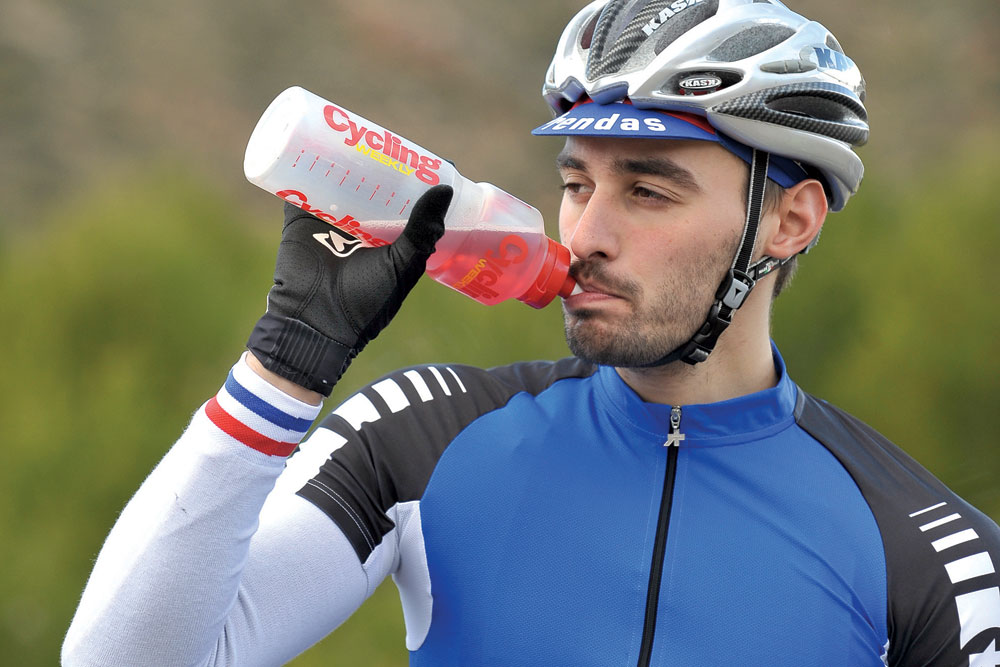
It is known that regular, intense endurance-based training is associated with self-reported, upper respiratory tract infections (URTIs) in elite athletes, so research interest has focused on the role played by the immune system in protecting against the bugs causing them.
The first line of defence against invading bacteria, viruses and fungi is a group of proteins found in saliva. The concentrations of these salivary antimicrobial proteins (sAMPS) are reduced when there is ongoing URTIs and mouth infections, so it’s of interest to determine their role among hard-training cyclists.
A joint British/American study published recently in the European Journal of Applied Physiology investigated how “fitness level impacts salivary antimicrobial protein responses to a
single bout of cycling exercise”. The researchers compared the sAMP responses to various exercising workloads of nine highly fit, experienced cyclists with eight less fit, experienced cyclists.
- The study showed for the first time that fitness influences sAMP response to acute exercise.
- A single bout of exercise increases the concentration and/or secretion of certain sAMPs.
- Fitness was a major influence on the sAMP response to a single bout of exercise, with highly fit cyclists producing greater post-exercise increases in sAMPs.
- The concentrations of lAMPs for all participants were within normal, healthy ranges.
The authors also suggested that hydration may be an important factor in maintaining mucosal immune integrity.
>>> Adding salt to sports drinks can improve performance, research suggests
Researchers at Loughborough University have investigated the relationship between hydration and sAMPS in 10 healthy, male recreational cyclists. Dr Sophie Killer, performance nutritionist at British Athletics, was lead author of the study, entitled ‘The influence of hydration status during prolonged endurance exercise on salivary antimicrobial proteins’ and recently published in the European Journal of Applied Physiology.
“Our study aimed to understand the effects of low level dehydration [pre-exercise], which is not uncommon in athletes, on mucosal immunity — the first line of defence of the immune system — during and immediately after two hours of cycling,” Killer explained to Cycling Weekly.
“Our study aimed to understand the effects of low level dehydration. We found that despite producing less saliva when mildly dehydrated during exercise, mucosal immune function was not significantly affected, and the small changes we did observe returned to normal when the athletes were rehydrated after exercise.”
>>> Recover right: The three Rs of recovery
Dr Killer advised: “Rehydration after exercise is important for both physiological and immunological recovery for endurance athletes.”
Eating, drinking and the immune system
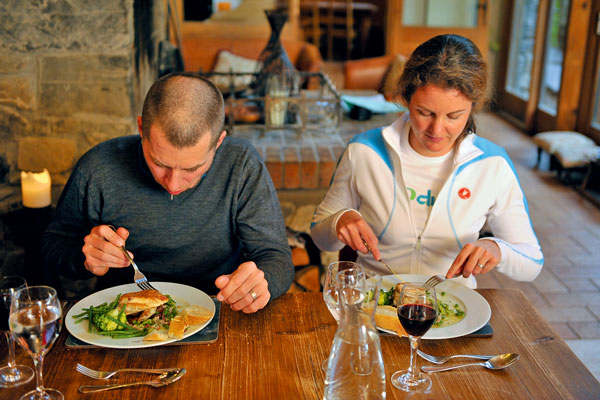
It’s clear that prolonged, intense exercise causes transient stress, inflammation and immune dysfunction. A recent approach to addressing this effect has seen a rise in research into so-called immunonutrition.
>>> Prevent muscle pain with good cycling nutrition
Intense exercise induces an increase in stress hormones, which in turn are responsible for increased concentrations of the protein interleukin-6 (IL-6) and increased numbers of white blood cells, called leukocytosis. Generally speaking, the more strenuous the exercise the greater the concentrations of IL-6 and white blood cells in the blood. So to what extent is the immune system of an endurance athlete influenced by what he or she eats and drinks?
>>> How to make your own recovery and energy drinks
In an American study published in the Journal of Strength and Conditioning Research researchers examined the influence of one 500ml serving of the energy drink Red Bull on endurance performance, IL-6 concentrations and white blood cell recruitment during a laboratory-based 25-mile simulated cycle road race.
>>> How far would you go to be a better cyclist?
Eleven recreational cyclists were recruited to this randomised, blinded study, and 50 minutes before the simulated road race they were given either Red Bull, or a cola drink with the same carbohydrate and caffeine content of Red Bull, but none of the other ingredients, or flavoured sparkling water.
The researchers had expected that the Red Bull and cola drinks would both improve performance and reduce IL-6 concentrations and leukocytosis, compared with the flavoured water. But the title of the study shows how wrong they were: ‘Pre-exercise energy drink consumption does not improve endurance cycling performance but increases lactate, monocyte and interleukin-6 response’. In fact, both Red Bull and the cola drink evoked higher IL-6 and circulating white blood cell concentrations, compared to flavoured water.
>>> How to prevent back pain (video)
The researchers had also expected that the extra ingredients in the Red Bull energy drink — taurine, glucuronolactone and B vitamins — would have reduced the exercise-induced inflammatory response when compared with the cola drink. In fact, it appears that the extra ingredients had the opposite effect.
In addition, neither Red Bull nor the cola drink significantly improved performance, which agrees with some studies but contradicts others.
This was the first ever study to examine immune-related responses to energy drink consumption, and the authors advise coaches and sports medicine personnel to give due consideration to “recommended carbohydrate and caffeine doses, consumption timing before competition, and remember that energy drinks contain a significant glucose load”.
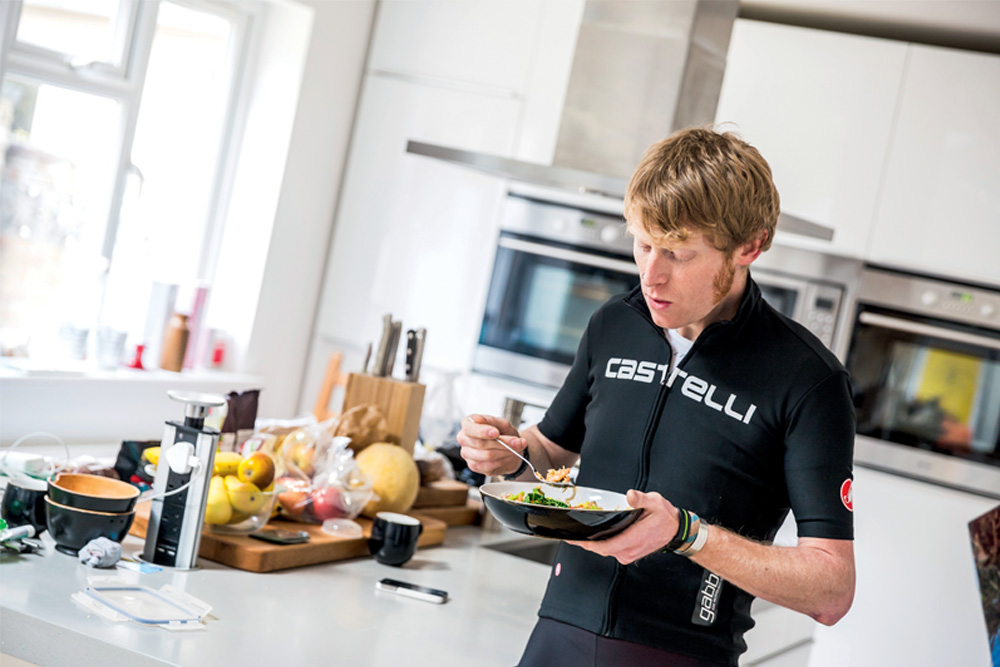
In recent times, there has been slightly less emphasis on research into sports drinks and more research on the effects of water combined with other food products. For example, one study of 14 trained cyclists showed that a combination of bananas and water compared well with a commercial sports drink over a 75km cycle ride; and another investigation found that: “Exercise-induced inflammation, oxidative stress, and changes in innate immune function were also comparable between banana and sports drink trials, and at attenuated levels during recovery when compared to previous water-only trials that we have conducted.”
Those trials were carried out by Dr David C Nieman — of North Carolina’s Appalachian State University in the United States — and colleagues, who recently reported in the journal PLOS One on the ‘Influence of pistachios on performance and exercise-induced inflammation, oxidative stress, immune dysfunction and metabolite shifts in cyclists: a randomised, crossover trial’.
>>> British Cycling launches series of recipes designed to give your riding a boost
Pistachio nuts (480kcal per three ounce serving) are an excellent source of water and fat-soluble antioxidants, and they’ve been associated with reductions in oxidative stress and inflammation in community trials. But would pistachios counteract exercise-induced inflammation and oxidative stress in cyclists?
Nieman’s team recruited 19 trained cyclists, who participated in two 75km time trials after two weeks of either pistachio supplementation or no pistachio supplementation. The researchers expected that eating 85g of pistachio nuts a day for a fortnight before the time trial would improve performance, and reduce inflammation, oxidative stress and immune dysfunction.
In fact, those who had eaten pistachios had time trial performances that were 4.8 per cent worse than those who had not eaten pistachios. Why? Tests showed that the sugar raffinose was found in the blood of those cyclists who had eaten the pistachios every day for a fortnight.
The authors speculate that raffinose causes a white blood cell toxin to accumulate, which may, in turn, adversely affect the energy-producing capacity of certain cells. The authors suggest that these results call into question the practice of eating foods high in raffinose — such as Jerusalem artichokes, lima beans, dried lentils — before long-duration, intense exercise.
>>> How to be more aero on your road bike (video)
A UK study recently published online in the Scandinavian Journal of Medicine & Science in Sports investigated the ‘Influence of four weeks of bovine colostrum supplementation on neutrophil and mucosal immune responses to prolonged cycling’. Bovine colostrum is the initial milk produced by a cow in the first few days after giving birth. Neutrophils are critical to the body’s immune response to infection, and are the most abundant white blood cell.
In this randomised, double blind study, 20 healthy cyclists were assigned either to a group consuming 20g of colostrum per day for four weeks, or a placebo group. Blood and saliva samples were taken before and after 2.5 hours of cycling, and the results demonstrated — for the first time — that colostrum supplementation better preserves certain aspects of the neutrophil response following prolonged exercise. However, colostrum supplementation had no effect on other measures of innate and mucosal immunity.
>>> Five exercises to prevent and treat cycling neck pain (video)
Interestingly, in a previous study the researchers demonstrated that colostrum supplementation reduced the number of bacteria in the saliva of physically active males when they were resting during the winter months.
A good night’s sleep
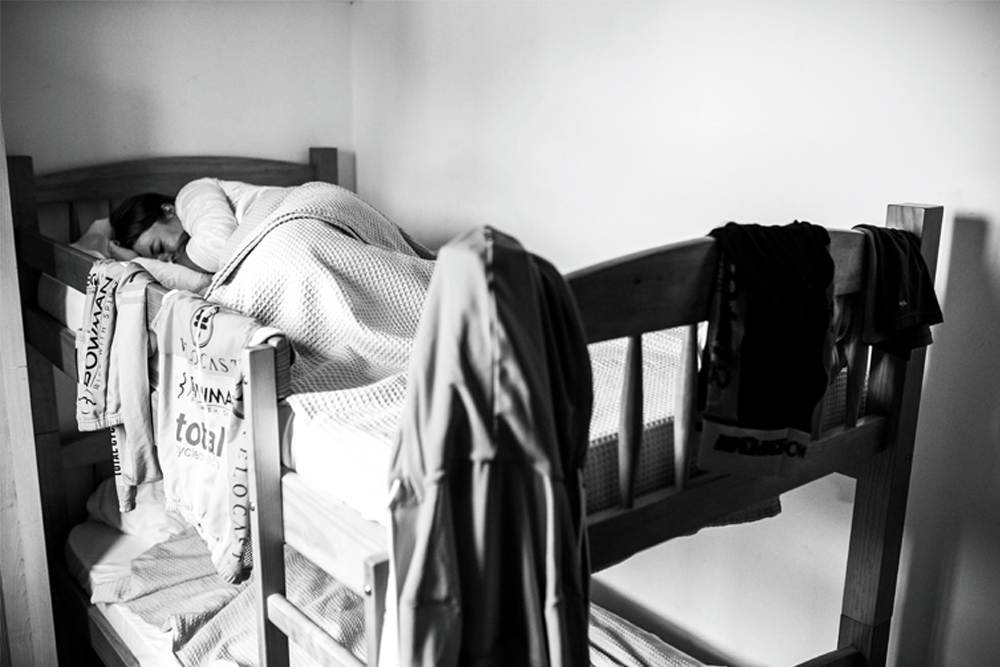
Training hard is bound to exert a toll on the body, and that includes the immune system. However, while certain drinks and foods — as we have seen — may not always have the desired immune-boosting effect, other factors can help. For example, healthy eating should be the norm for everyone, not only cyclists; alcohol is no great friend of the immune system; and then there is sleep, too.
>>> Sleep well, ride better
Dr Kirstie Anderson of Newcastle-upon-Tyne’s Royal Victoria Infirmary is a consultant neurologist and one of Europe’s leading sleep experts. She said: “Sleep is arguably the single most important thing we do every day for normal physical and mental health, and we’re all sleeping about one hour less than our counterparts did in the 1950s. Sleep is vital for normal immune function, recovery of muscle damage, normal cell division, memory, normal mental health, and temperature regulation alongside weight and appetite. These things all deteriorate rapidly if we don’t sleep properly for more than a few days.”